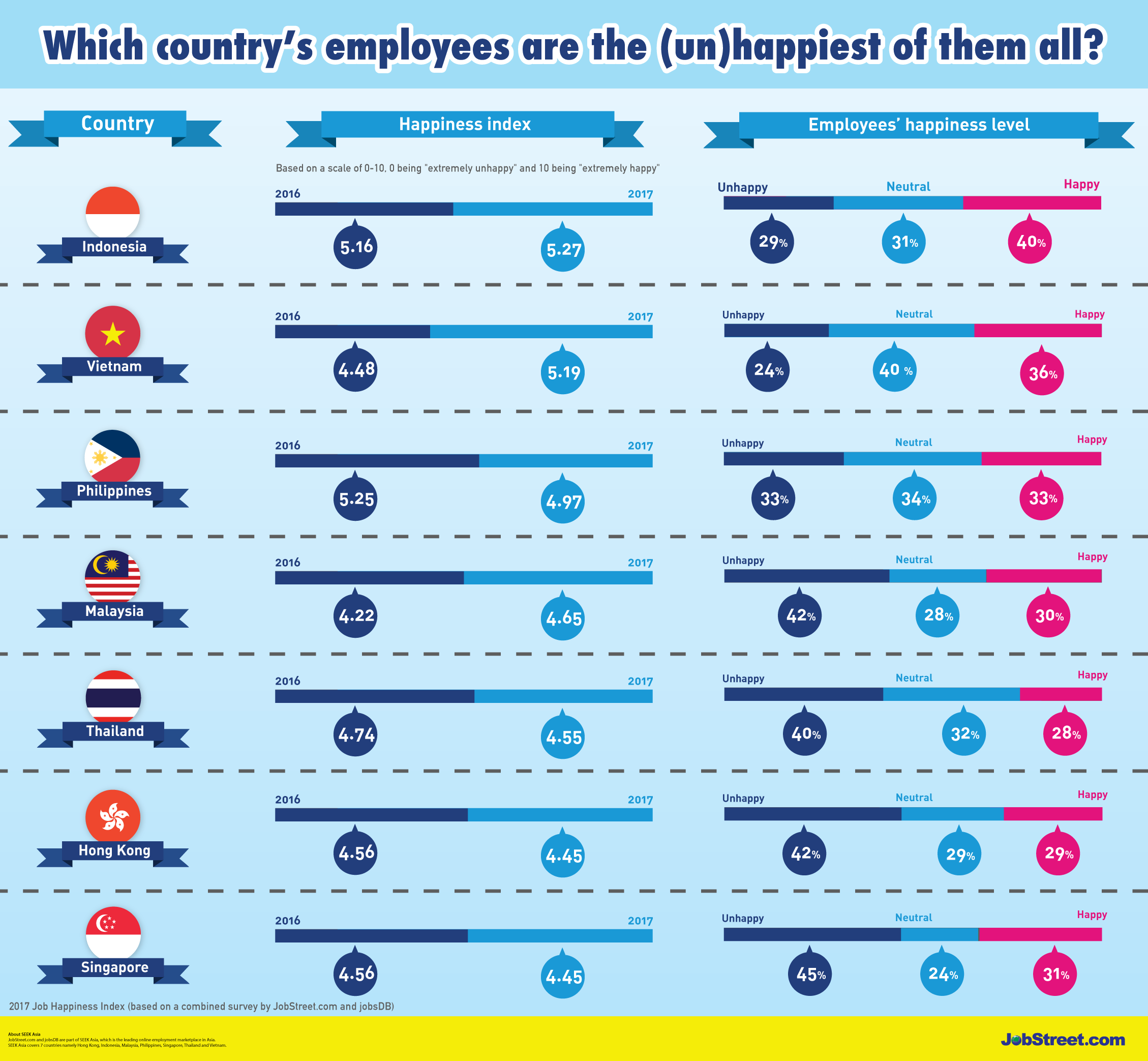Job (un)happiness in Asia: Asians struggle with job satisfaction [Infographic]
We recently set out to gauge the overall happiness level amongst working adults in select Asian countries.A combined survey byJobStreet.com and jobsDB polled a total of 35,513 working adults in the Philippines, Hong Kong, Thailand, Singapore, Malaysia, Vietnam and Indonesia, between 31 July to 31 August 2017.
Key questions posed in the survey included,“How happy are you with your job?”and“How do you think this will change in the next 6 months?”. Both questions carried a rating of 0 to 10, 0 being extremely unhappy and 10 extremely happy.
We spend such a big chunk of our life at work that the quality of our time at work directly affects our mental, emotional and physical well-being. So exactly how happy or unhappy are we in our jobs?
Who’s the (un)happiest of them all?
We looked at the numbers from the previous year to see if anything changed in our respondents’ outlook:
As illustrated by the table above, the Job Happiness Index for both 2016 and 2017 range from 4 to 5 for each country. Given that the rating is based on a scale of 0 to 10, 0 being extremely unhappy, 10 extremely happy, and 5 denoting neutral, the scores indicate a generally unhappy or at best, indifferent workforce.
Indifference can be equally as bad as unhappy, as it means lack of interest and detachment. If you don’t care about your work, you’re probably not motivated to contribute new ideas or solutions. That’s bad news for both you and your employer.
What are they (un)happy with?
Respondents were asked to rate their happiness level with a list of 13 qualities at their present job on a 7-point spectrum varying from“very unhappy”to“very happy”.
Across the board, there was universal agreement amongst respondents that they were happiest with “work location”, “colleagues”, and “company reputation” (in descending order). This suggests a rather superficial happiness at best, as none of these qualities relate to career growth or personal development.
When it came to the work qualities they were unhappiest with, once again there was uniformity across all countries, with “career development”, “leadership” and “training opportunities” amongst the bottom 4.
How does the future look, and what would make things better?
When asked,“How do you think this will change in the next 6 months?”,the general sentiment of respondents conveyed a rather pessimistic view of the foreseeable future, with a score ranging from 4 to 5 (5 being no change and 4 worse).
When asked what would make them happier with their job in the next 6 months, an overwhelming majority of respondents answered “salary increase” (29%), and “a new job” (24%). This suggests deeper underlying issues, as not even the prospect of a promotion, a new boss, or different job responsibilities seem to offer them much hope of a brighter outlook.
It is important to note that quantitative studies tend to be limited by the absence of qualitative responses which allow for deeper insights, accounting for the somewhat simplistic responses in this context.
For more fresh insights into career hacking and the latest employment trends, follow our Facebook page!



